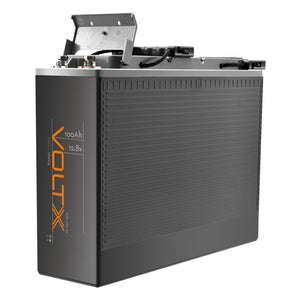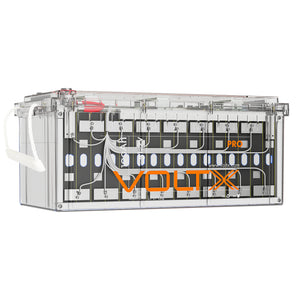Sailing out into the sea or lake is very much different from driving on the road. This is why as reliable as your car battery is, it won't really fare very well in marine applications. Regular batteries are comprised of thinner plates suitable for smooth terrains while boat batteries are designed with thicker plates to be able to withstand constant vibration from the waves. A boat battery system is a bit similar to a caravan battery setup in the sense that they usually have two batteries or what is called a dual battery system. The first one is used to start the engine, while the other one serves as a house/service battery for powering your electronic equipment onboard. These two function separately with the help of a battery isolator which keeps the starter battery connected to the engine and the house battery to your load. Take note that the best secondary battery for running your appliances will always be a deep-cycle marine battery. Deep-cycle batteries are meant for extended periods of use and with their 80% depth of discharge, you won't have much trouble keeping your essentials powered up throughout your entire boating trip. In other cases, you can also opt for a dual purpose marine battery, which can handle both the task of kickstarting your engine and supplying consistent power for your electronics at the same time.
What Size Battery Do I Need For My Boat?
Before sizing up your boat battery, you need to consider the kind of boat you have first and what type of battery setup you want for it. Next, calculate the amperage you will need. While it may seem intimidating, doing a simple “energy audit” is actually simple-you only need to divide the wattage by your system's voltage to get the number of amps for certain equipment and multiply it by the number of hours you will be running it. For example, if you have a 6W light bulb on a 12V battery and you're planning to use it for 10 hours, this will consume a total of 5Ah. Once you have done this calculation for every appliance you will be using, add up their average amps per hour to give you a good idea of how many amp-hours your battery needs to cover and if you might need two battery packs to power everything on your boat.
How Do You Store Boat Batteries in Winter?
Since you most likely won't be using your boat batteries during the winter season, the most important step to keeping them in good condition is through proper storage. Batteries that stay unused for quite some time are prone to decline, but storing them correctly makes all the difference and helps ensure that you still get optimal performance the next time you take them out for a boat ride. First, charge them before storing them to reduce the risk of a frozen battery and have them ready for the next season. Make sure to disconnect the cables, terminals, and all electrical loads from your batteries. Even small loads can cause your battery to drain and if you couple it with self-discharge, your boat battery will be more vulnerable to damage during the offseason. Place your battery in a cool, dry place where it won't freeze, ideally in a garage or storage facility. If you're using a container, make sure your battery remains easy to access for charging. Make it a habit to trickle charge it every month to extend its lifespan and check that you are using the right charger for your battery type. Tip: You can use smart chargers to top off your battery and automatically prevent them from overcharging.
How To Choose a Good Boat Battery?
When it comes to the best marine battery type, nothing beats lithium deep-cycle batteries. Why lithium? Among all battery components, lithium is the best in quality, specifically the lithium iron phosphate battery or LiFePO4. It's a fusion of efficiency and safety mainly due to its integrated battery management system designed to deliver maximum performance with every use. Lithium boat batteries make a great investment as well despite the higher upfront cost because of their longer lifespan, which can last up to seven years or more with proper care.
The next factor to keep in mind when choosing a boat battery would be the output. If you're choosing a starting battery, focus on the battery's cold-cranking amps or CCA. This is the number of amps from 0 degrees Fahrenheit for 30 seconds. For deep-cycle batteries, pay attention to the amp-hour rating and make sure it's enough for your power needs. You also want to check the voltage output. Larger boats typically use 24V batteries but if you have enough space, you can also opt for multiple 12V batteries instead. Structure-wise, ensure that your battery is durable enough with good vibration resistance yet lightweight enough to avoid problems with weight limits on boats.
More from Outbax
Stoked for your next boating adventure? Start searching for your boat batteries now! Here at Outbax, we have some of the best lithium marine batteries for sale. These are all deep-cycle batteries and are of guaranteed quality but guess what? They're priced at a more affordable range to accommodate every outdoor enthusiast! Everything is also done online so it doesn't matter if you're after marine batteries in Perth-we'll have your battery delivered right to your doorstep! Looking for backup power sources for your boat? Check out our marine generators, power stations, and portable solar panels too.



